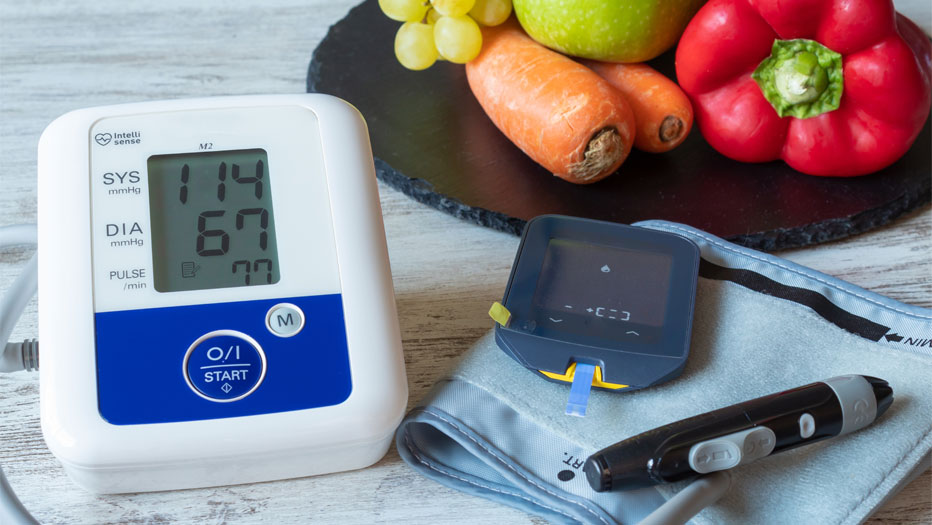
Using a Dietitian to Lower A1c: Kim’s Journey to Better Health
By Vivian Pares-Emerick, LDN, RDN
Community Dietitian, Neighborly Care Network
March 13, 2025
For individuals with diabetes or those at risk, managing blood sugar levels isn’t just about numbers—it’s about reclaiming control over your health and your future. One of the most critical indicators of long-term blood sugar management is the A1c level, which reflects the average blood sugar levels over the past two to three months. A high A1c can lead to serious complications, but the good news is that change is possible—with the right support.
This is Kim’s story—a journey of small, sustainable changes that led to a remarkable transformation.
The Wake-Up Call
Kim, a 63-year-old retiree with a love for pickleball and eating potato chips, was diagnosed with diabetes in February 2024. The news hit her hard. With an A1c of 6.3%, she wasn’t just on the edge of diabetes—she was at a crossroads.
Determined to turn things around, Kim sought help from Neighborly Nutrition Counseling. She wasn’t looking for a quick fix or a restrictive diet. She wanted a plan that worked for her lifestyle—something realistic, something sustainable.
A Plan Built for Kim’s Life
During their first meeting, Kim and her dietitian, Vivian, took a deep dive into her daily habits. Kim loved starting her mornings with juice to take her medications, sugary cereal and coffee. Kim often felt sluggish and famished by lunchtime. Processed snacks and convenience foods had become her go-to, especially on busy days.
Together, they created a plan tailored just for her:
- Balancing Meals: Instead of cutting out foods she loved, Kim learned how to balance them. Including fiber rich grains such as whole wheat instead of white bread, lean protein-rich options like poultry and eggs with veggies, kept her full and satisfied.
- Making Smart Swaps: Sugary cereal and juice in the morning were swapped for savory egg whites and avocado on whole grain toast, fruit and nuts. These foods kept her energy steady throughout the day. She also discovered the magic of spiralizing zucchini to add to her well-balanced casseroles, that helped stabilize her blood sugar.
- Mastering Portions: With her Neighborly Dietitian’s guidance, Kim learned how to see her food in groups. Simple changes—like following the My Plate guide and using smaller plates —helped her avoid overeating without feeling deprived.
- Timing Matters: Eating at regular intervals became a game-changer. By fueling her body consistently every 3-4 hours, Kim avoided the blood sugar rollercoaster that left her feeling drained and irritable.
- Moving More, Without the Gym: Kim didn’t need to overhaul her routine—just tweak it. By adding protein, healthy carbs and eliminating the refined cereal for breakfast, Kim could play pickleball for a longer time thus improving her fitness and blood sugar control.
The Transformation
Three months later, Kim reported to her Dietitian, that her A1c had dropped from 6.3% to 5.7%—back in the normal range. She had lost 8 pounds and felt more energetic. Kim’s doctor also had to lower her high blood pressure medication dose because it improved drastically. The best part of this journey was Kim could eat potato chips that were healthier than the standard highly processed chip because she learned what to look for on the nutrition label on all her food.
But the real victory? Kim felt empowered.
Her relationship with food had shifted. Instead of feeling restricted, she felt free—free to enjoy meals without guilt, free to live her life without fear of diabetes dictating her future.
Why a Dietitian Makes a Difference
Kim’s story is proof that managing diabetes isn’t about perfection—it’s about progress. A Registered Dietitian provides more than just meal plans; they offer education, support, and the personalized guidance needed to create lasting change.
If you or a loved one is struggling to lower A1c levels, you don’t have to do it alone. A Neighborly Dietitian can help you build a plan that fits your lifestyle, so you can focus on what truly matters—living a full, vibrant life.
For more information or personalized guidance, contact your Neighborly dietitian at 727-573-9444 or nutrition@neighborly.org.
Sources:
How to Lower Your A1C Level: 9 Tips
How to Lower Your Blood Sugar: 11 Simple Strategies
MyPlate.gov | MyPlate Plan Calculator
Five Evidence-Based Lifestyle Habits People With Diabetes Can Use
At Neighborly, Caring is at the Center of All We Do.




















